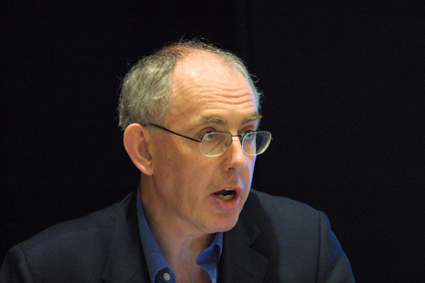I’m kicking off a week of Deep Reads, in hopes of jumping back in the habit of reading books, which I’ve fallen out of for the last couple of months. Regular content — including, I promise, new Sandwich Century entries — will resume next week.
From Fred Halliday’s 100 Myths About the Middle East:
The Middle East is, in some fundamental way, ‘different’ from the rest of the world and has to be understood in terms distinct from other regions.
This idea is to be heard as often in the Middle East, where people are prone to vaunting their exceptionalism, as it is in hostile discussions in the West. If it is supposed to mean that there are distinct languages, religions, cuisines and customs in the Middle East, this is indeed the case, but one that can only be made if it recognizes the enormous differences between Middle Eastern societies and states themselves as much as between the region and the rest of the world. However, if it is meant to mean that the forms of social and political behavior found in the region are somehow unique, or cannot be explained in broad analytic terms used for other parts of the world, the claim is false. The main institutions of modern society — state, economy, family — operate in the Middle East as they do elsewhere. The modern history of the region, conventionally dated from 1798 — the French occupation of Egypt — is very much part of the broader expansion of European military, economic and cultural power in modern times, and has to be understood in broad terms comparable to the experience of other subjugated and transformed areas of the non-European world: Africa, Latin America, South Asia, and East Asia.
The main features of Middle Eastern society to which those claiming its exceptionalism draw attention — dictatorship, rentier states, national religious ideologies, subordination of women — are by no means specific to it. Of course, political actors in the region, be they conservative monarchies or radical Islamists, like to proclaim their originality and uniqueness, but this is part of the drive for political legitimacy, not a historical or analytic statement. If the region is supposed to be unique because of the impact of oil on its economies and societies, a brief study of other oil-producing states such as Indonesia, Nigeria, Venezuela, and above all in recent years, Russia and the former Soviet republics will soon dispel any such illusion. If it is said to be unique because of the ferocity of its inter-ethnic conflicts, particularly the Arab-Israeli dispute, this too does not survive any comparable judgment: far more people have been killed in inter-ethnic conflicts in Rwanda, the former Yugoslavia, and be it not forgotten, twentieth-century central Europe than in the more than half-century of the Palestine question.
Terrorism, too, is by no means peculiar to Islam or the Middle East; within the modern history of the region all religions have been used for purposes of mass murder and ethnic discrimination — as Jewish underground groups like Lehi and Irgun demonstrated in the 1940s, and as the Christian Maronites showed in Lebanon in the 1970s and 1980s. Elsewhere in the world, not to forget one of the historic proponents of terrorism along with the Irish and Bengalis in the nineteenth century and beyond, were the Christian Armenians. That particular bane of the 2000s, suicide bombings, were first pioneered by the Hindu guerrillas of Sri Lanka, the Liberation Tigers of Tamil Eelam. All regions, religions and peoples, like individuals, are in some ways unique in origin and characteristics; but characteristics shared with others are far greater by degree than those which distinguish. It is for this very reason that states, peoples and demagogues from all directions make such efforts to exaggerate their own, and their enemies’, singularity.
The Middle East therefore shares far more with the rest of the world than it exhibits differences: all its societies, states and peoples are part of a world economy and subject to its changes; all uphold principles of national independence and culture and reject what they see as alien impositions; all protest when they are not accorded the rights and respect that the modern world, rightly, proclaims as being universal entitlements.
Beyond all of this, its peoples share the human emotions common to all mankind. In the worlds that Shakespeare wrote for his Jewish character Shylock in The Merchant of Venice, “If you prick us, do we not bleed?” It is here, in the need and demand for universal respect and for a just place in the modern world, that the greatest source of anger and confusion in the Middle East resides — not in some supposed singularity, irrationality or peculiarity of religion, race or region. The roots of so-called ‘Arab rage’ lie not in some purported cultural or religious peculiarity of the Arabs, but in the adherence by the peoples of the Arab world to the universal claims of justice and equality which the rest of the world has propagated these two centuries past, and has now largely taken for granted.

